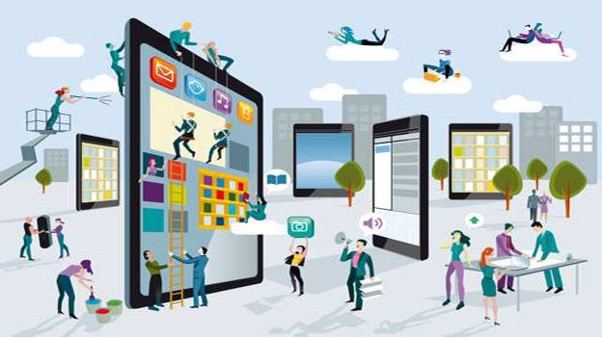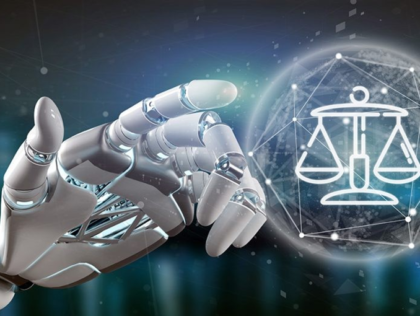Status of Jobs Today and the Future
As we stand at the forefront of the Fourth Industrial Revolution, the integration of Artificial Intelligence (AI) into various aspects of our lives is inevitable. AI, often defined as the simulation of human intelligence in machines, holds the promise of transforming industries, economies, and societies. While its benefits are numerous, there are growing concerns about the potential disruption to traditional job markets. In this article, we will explore how AI is set to affect jobs in the future, examining its definitions, benefits, disadvantages, and the overall implications for the workforce.
Artificial intelligence (AI) has emerged as the defining force of our time, disrupting industries, reshaping social norms, and sparking existential questions about humanity’s place in a world increasingly powered by machines. One of the most pressing concerns surrounding AI is its impact on the future of work. Will robots steal our jobs and leave us toiling in a dystopian wasteland of unemployment and despair? Or will they usher in a new era of human-machine collaboration, freeing us from drudgery and propelling us towards previously unimaginable levels of prosperity and innovation?
Defining Artificial Intelligence
Artificial Intelligence encompasses a broad range of technologies that enable machines to perform tasks that typically require human intelligence. These tasks include problem-solving, learning, language understanding, and perception. AI systems are designed to analyze vast amounts of data, identify patterns, and make decisions with minimal human intervention.
Some Key Terms
To understand the potential impact of AI on jobs, it’s crucial to define some key terms:
- Automation: Replacing human labor with machines or software to perform tasks.
- Augmentation: Using AI to enhance human capabilities and productivity.
- Job displacement: Loss of jobs due to automation or AI.
- Job creation: Generation of new jobs related to AI development, deployment, and management.
Benefits of AI for Jobs
- Increased productivity and efficiency: AI can automate repetitive tasks, freeing up humans to focus on higher-level thinking and problem-solving. This can lead to significant economic growth and improved standards of living.
- New jobs and industries: The development and deployment of AI will create new jobs in fields like AI engineering, data science, robotics, and cybersecurity.
- Improved safety and working conditions: AI can take over dangerous or tedious tasks, reducing workplace injuries and creating healthier work environments.
- Personalized learning and upskilling: AI-powered training tools can help individuals reskill and adapt to the changing job market.
- Accessibility for people with disabilities: AI-powered assistive technologies can open up new employment opportunities for people with disabilities.
Disadvantages of AI for Jobs
- Job displacement: While AI creates new jobs, it may also eliminate existing ones, particularly repetitive and routine jobs. This could lead to unemployment, income inequality, and social unrest.
- Bias and discrimination: AI algorithms are trained on data, which can reflect and amplify existing societal biases. This can lead to discriminatory outcomes in hiring, promotion, and other aspects of work.
- Loss of control and human agency: As AI becomes more sophisticated, it could raise concerns about job security, worker autonomy, and the overall control of work within society.
- Ethical challenges: Questions arise regarding algorithmic fairness, privacy, and the potential misuse of AI in the workplace.
- The “AI skills gap”: The rapid evolution of AI may create a skills gap, leaving many workers unable to compete for new jobs.
Conclusion: A Symbiotic Future?
The future of work with AI is not simply a binary choice between job displacement and human-machine collaboration. It will likely be a complex and nuanced interplay of both forces. While job losses in some sectors are inevitable, new opportunities will emerge in others. The key lies in preparing for this transition and ensuring that the benefits of AI are shared widely and equitably.
Here are some steps we can take to navigate this future:
- Invest in education and training: We need to equip workers with the skills and knowledge necessary to thrive in the AI age, focusing on critical thinking, creativity, and the ability to work effectively with technology.
- Develop social safety nets: Governments and businesses need to provide support to workers displaced by automation, including retraining programs, income supplements, and unemployment insurance.
- Regulate AI ethically: We need strong ethical frameworks to govern the development and deployment of AI, ensuring fairness, transparency, and accountability.
- Encourage human-machine collaboration: Instead of framing AI as a competitor, we should see it as a tool that can augment and enhance human capabilities, allowing us to achieve more than ever before.
The story of AI and jobs is still being written. By fostering collaboration, preparing for change, and prioritizing ethical considerations, we can ensure that AI becomes a force for good, ushering in a future of work that is prosperous, inclusive, and truly human-centered.
This is just the beginning of the conversation. What are your thoughts on how AI will affect jobs in the future? Share your insights in the comments below. We can build a brighter future together, one informed by both cautious optimism and careful planning.
The impact of AI on jobs in the future is multifaceted, presenting both opportunities and challenges. While automation may lead to job displacement in certain sectors, it also holds the potential to drive innovation, efficiency, and the creation of new roles. The key lies in proactively addressing the challenges through education, training, and the development of ethical frameworks that guide the responsible implementation of AI technologies.
As we navigate this transformative period, fostering a collaborative relationship between humans and machines and ensuring the equitable distribution of the benefits of AI will be essential. By embracing a future where AI augments human capabilities rather than replacing them, we can strive to create a workforce that is not only technologically adept but also resilient, adaptable, and well-prepared for the challenges and opportunities that lie ahead.
Author: Emmanuel K. Gadasu
(CEH, CDPS, CIPM, BSc IT, MSc IT and Law*, LLB*)
(Data Protection Officer, IIPGH and Data Privacy Consultant and Practitioner, Information Governance Solutions)
For comments, contact author via ekgadasu@gmail.com or Mobile: +233-243913077





